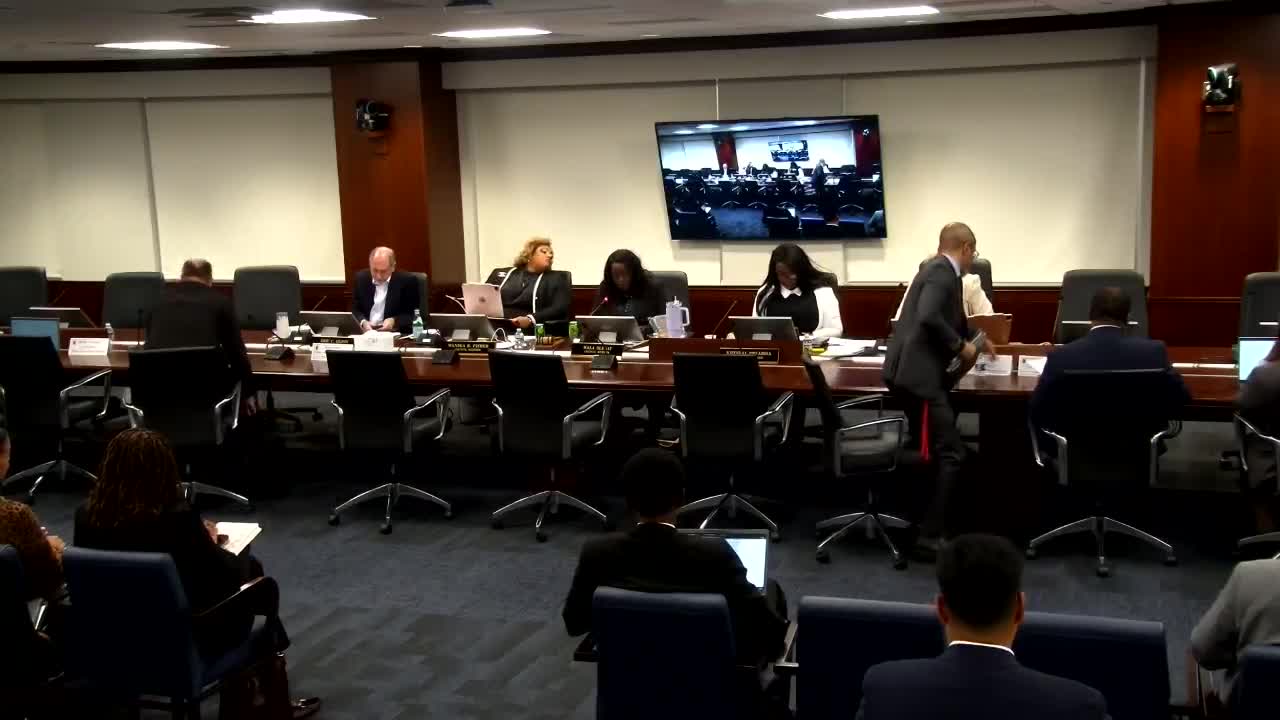Committee approves expanded protections for seniors against door‑to‑door fraud and high‑risk solicitations
Get AI-powered insights, summaries, and transcripts
Subscribe
Summary
The committee advanced CB84 (draft 2) to protect seniors from door‑to‑door fraud by requiring background checks and fingerprinting for applicants in high‑risk industries, mandating elder‑fraud training, and increasing bonding for some vendors; the measure passed 5‑0.
The committee advanced CB84 (draft 2) with amendments to strengthen protections against door‑to‑door fraud targeting older residents. The measure passed on a 5‑0 vote.
Sponsor Council member Oriada said the bill grew out of constituent complaints about high‑pressure sales tactics — in one example a senior who paid roughly $10,000 more than expected for services sold at the door — and sought to place clearer responsibilities on companies and their solicitors.
Key provisions in draft 2 accepted by the committee include: - Definitions for "high‑risk industries" and a requirement that applicants engaged in high‑risk industries undergo criminal background checks and fingerprinting through the Maryland Department of Public Safety and Correctional Services (DPSCS), with costs borne by the applicant. - Mandatory consumer protection and elder‑fraud awareness training for certain applicants. - Increased bond amounts for firms in high‑risk industries. - Required senior consumer rights disclosures and standardized license verification (a previously proposed QR‑code verification provision was struck from draft 2). - Removal of an initially proposed countywide "no solicitation" registry in this draft; provisions prohibiting solicitation of registered properties and related enhanced penalties were struck in draft 2.
Ramon Gonzales, presenting the draft changes, described multiple edits that narrowed enforcement tools and reassigned some responsibilities to the Department of Family Services for education and outreach. Elena Balam Butler, representing the Department of Family Services, said the department supports the legislation but noted it is not an enforcement or licensing agency and cannot itself carry out regulatory enforcement.
"The Department of Family Services is not an enforcement agency. We are not a licensing or regulatory agency," Butler told the committee, while offering the department's assistance with education and outreach.
Joseph (policy analyst) informed the committee that implementing the bill could require new county expenditures for staffing, training and technology and said the licensing system would require upgrades and the county would likely need to hire additional investigators to enforce provisions that staff characterized as an "unfunded mandate."
The committee voted to advance the bill, draft 2, with the sponsor's amendments; the roll call recorded Chair Blige, Vice Chair Fisher, Council member Olson, Council vice chair Oriaga and Council member Watson voting yes.
Next steps: CB84 will move to the full council with the committee's favorable recommendation. The committee made clear in discussion that responsibilities for enforcement and outreach differ and that Family Services will focus on education rather than licensing enforcement.
